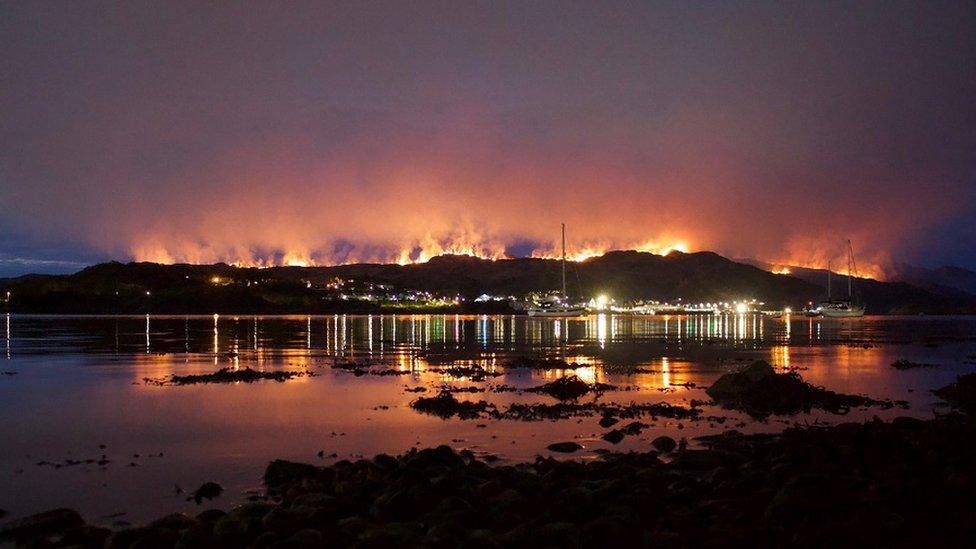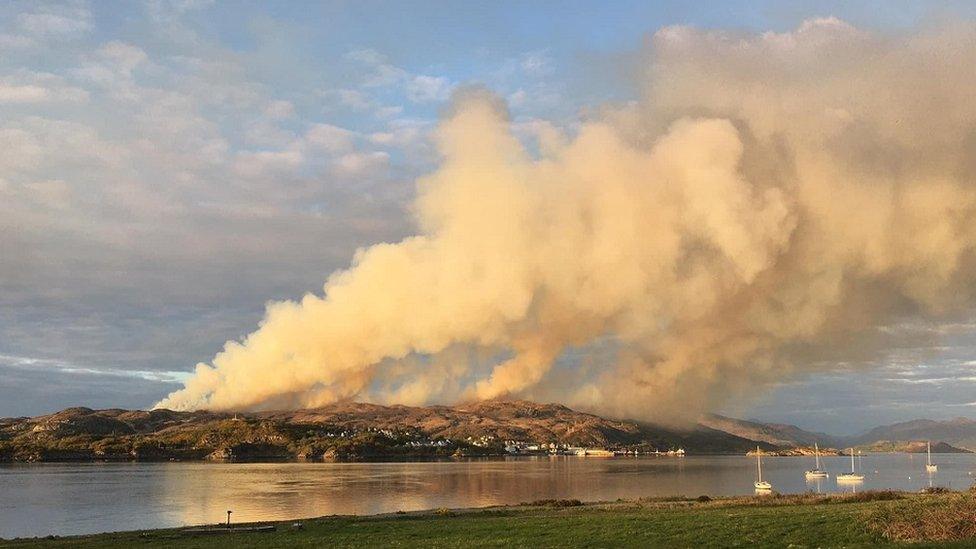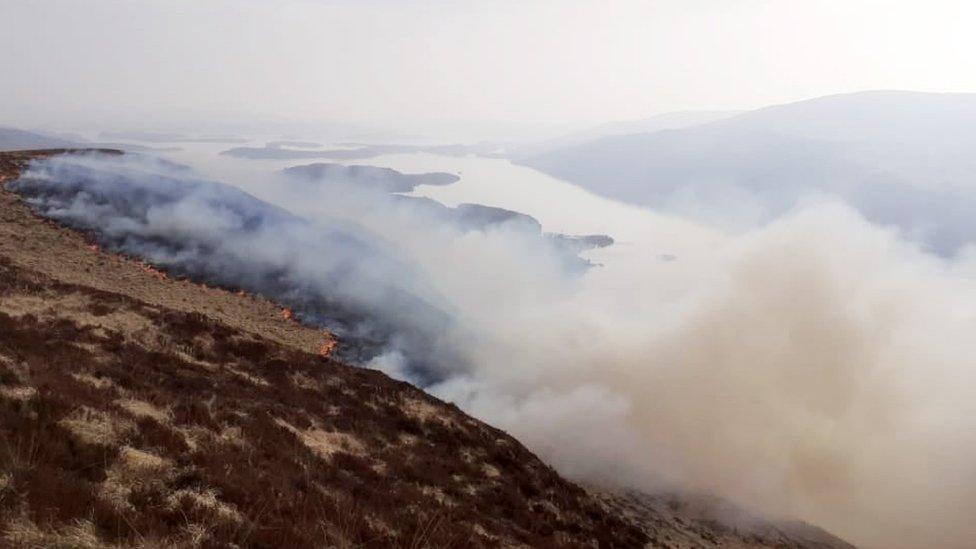Crews battle wildfire near west Highlands village
- Published
A helicopter was used to waterbomb the fire near Kyle of Lochalsh
Firefighters have been battling a moorland wildfire in hills near Kyle of Lochalsh in the west Highlands.
Scottish Fire and Rescue Service (SFRS) crews have been at the scene since Wednesday morning.
A helicopter was being used on Thursday morning to waterbomb the fire, which was burning along a three mile (5km) front.
A SFRS spokesperson said there were no reports of anyone being injured in the incident.
The incidents follow a SFRS warning earlier this month of a heighted risk of wildfires due to dry and windy conditions.
SFRS said it was alerted to the fire at Erbusaig, north of Kyle of Lochalsh, at about 10:20 on Wednesday.

The wildfire in a picture taken across in Skye by Drew McGrath
A spokesperson said: "Operations control mobilised four appliances and specialist resources to the scene, where crews remain in attendance as they work to extinguish a fire front of approximately three miles long."
Firefighters were also called to a moor fire in the Bayble area of the Isle of Lewis on Wednesday.
Parents were asked to pick up their children from the local school early as a precaution. The fire has since been brought under control.
Weeks of dry weather has played a part in Kyle and Lewis fire incidents.

Firefighters have been tackling the incident since Wednesday
BBC Scotland weather presenter Christopher Blanchett said despite the wildfires warning, Scotland was on-course to record a normal amount of rainfall this month.
But he said: "As with all statistics, it's not that simple. Most of this month's rain across the north and west of Scotland fell in the first week of the month, with the following weeks becoming increasingly dry.
"Over the last week or more, high pressure has ensured very dry conditions, coupled with brisk north east winds - which help to dry the air further as it rises up and over the mountains, before reaching the west of Scotland.
"Dry vegetation becomes easier to ignite and spread in these dry, breezy and reasonably warm conditions, and wildfires can take hold."
Mr Blanchett said the lack of rainfall followed a very dry month for the region in March, when only a third of the usual amount of rain was recorded.
He added; "The dry spell is set to break on Saturday, with rain arriving across parts of the west and north west."
Related topics
- Published21 April 2022
